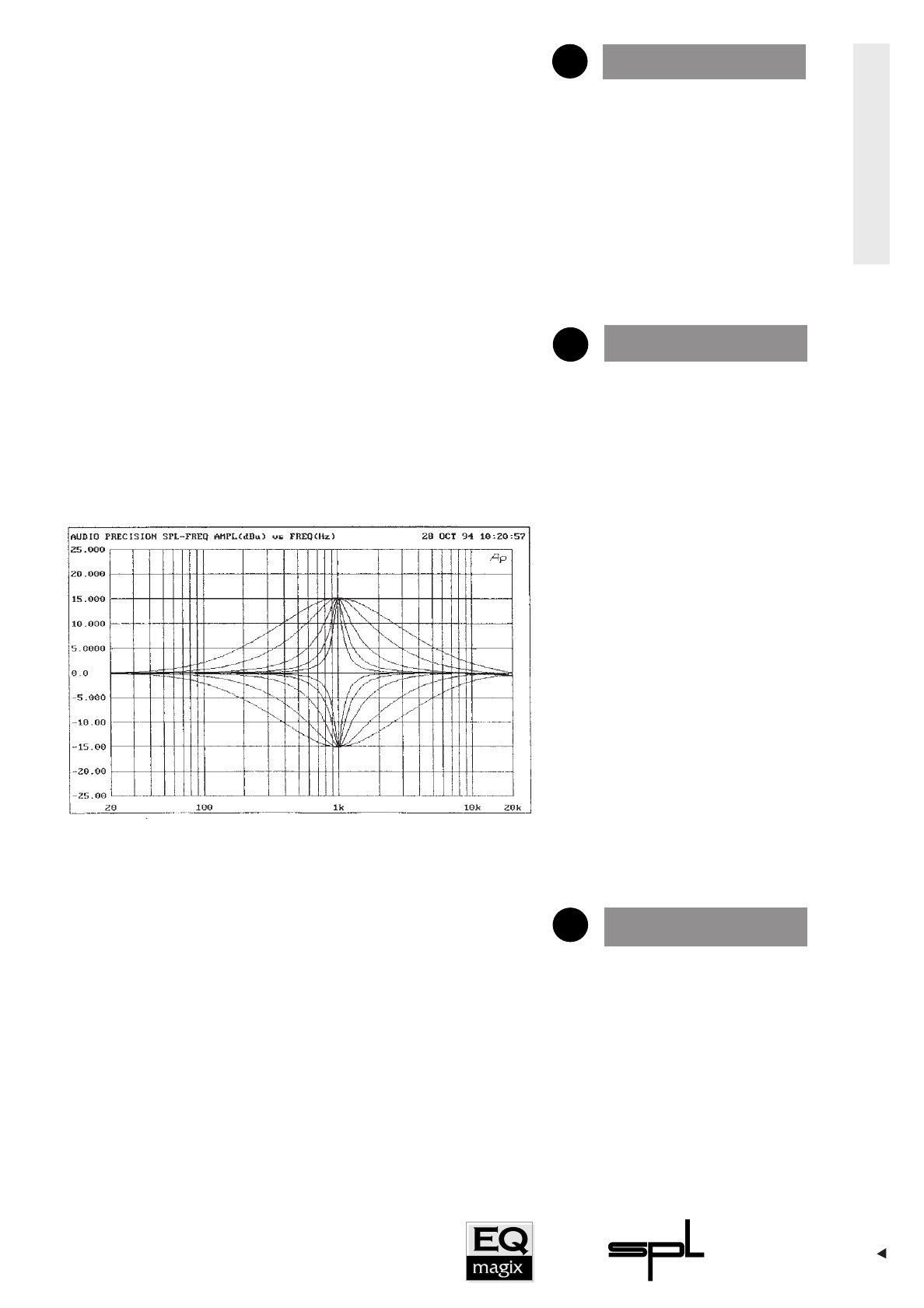
17
Parametric
When the Q potentiometer is turned to the extreme left, the bandwidth
around the selected centre frequency is very narrow. This is known as »high
Q« with a value of Q3.6. When it is turned to the extreme right, the
selected bandwidth is of maximum width, i.e. »low Q«. The value is Q0.6.
The bandwidth factor is calculated from the width of the frequency curve
on the -3 dB points relative to the 0 dB line.
The below diagram shows various Q values at a centre frequency of 1
kHz:
The Q-F
INE switch is responsible for fine tuning of the control characteri-
stics of the Q potentiometer. When the switch is activated, the Q values
change in so that position Q3.6 (extreme left) takes on the value Q1.9. In
the 12 o'clock position (Q1), all Q values are halved. The values between
Q1 and Q0.6 remain unchanged.
Q-F
INE enables you to make more differentiated settings in the critical
control ranges of bandwidths relevant for musical applications. Two Q
values can therefore be compared more easily by switching over quickly.
The N
OTCH filter is used to filter out discrete interference frequencies
where the maximum C
UT setting (-15 dB) on the BOOST/CUT control is not
sufficient.
The N
OTCH filter of the EQ MAGIX is variable in bandwidth (Q) and there-
fore, if it is used with broader bandwidths (low Q), it can also be used to
filter out wide areas in the audio spectrum (e.g. lowering mids).
The F
REQUENCY control is responsible for a frequency range of between
14 Hz and 58 kHz (also see point 8 F
REQUENCY, page 15), thus enabling
removal of interference noise such as quantization and formantization
noise which can be induced by digital equipment.
The N
OTCH filter's slope characteristics (known as ROLL-OFF) can be
varied. After N
OTCH mode has been activated, the BOOST/CUT control takes
on the function of the R
OLL-OFF control. This means that the slope characte-
Q
Q-Fine
Notch
10
11
12
Fig. 3:
5 different Q values with boost
and cut at +/-15dB at 1kHz centre
frequency.


















